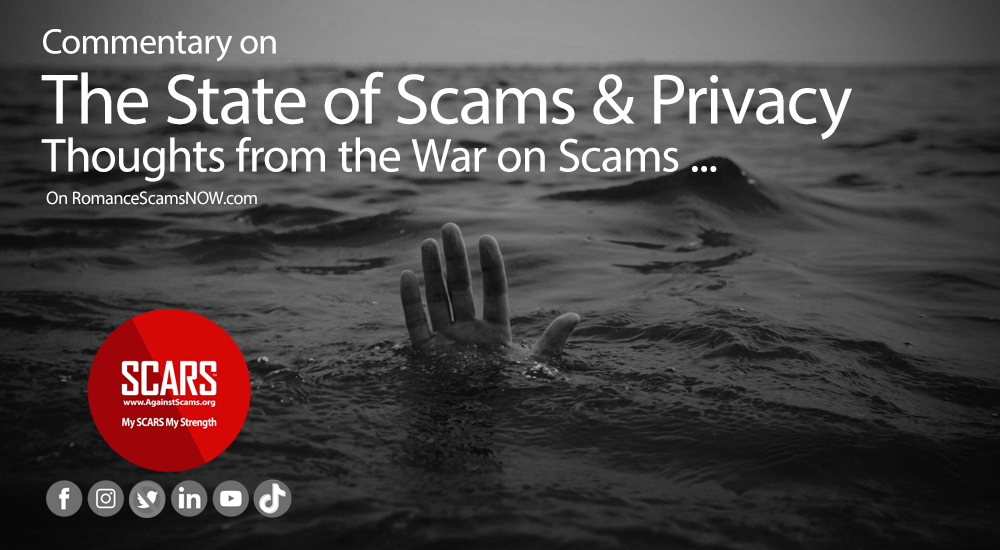Thoughts from the War on Scams … July 17, 2021
Things Have to Change!
A SCARS Commentary on Privacy
A Commentary on The State of Scams & Privacy
By Dr. Tim McGuinness, Member of the Board of Directors, Society of Citizens Against Relationship Scams Inc.
I recently heard from a friend who was applying for a new position and was declined because of #data that was discovered – which presumably was obtained through a data breach. Not only was his privacy violated with the data breach, but increasingly employers are doing dark web searches for information about employees and prospective employees!
It is bad enough that they are now basing decisions on social media, but if there are thousands of data breaches a year then really nothing is safe!
Are we living in a new witch trial era? Where you are burned at the stake, not just because of what you say, but because of data that may be contained in different websites and services?
I challenge anyone to list all of the accounts they have created over the years? Hundreds, thousands? Most websites want your data before they will let you even see what they really do! Have you kept track of all of them and what they might mean to others looking into your activities?
Yet that is now the world we seem to live in!
The Supreme Court just said you cannot litigate against a data breach, you have to wait until you are actually harmed, but by them how do you connect it to a specific data breach? If your identity is stolen or you are impersonated, how do you KNOW where the information came from?
The situation is so far beyond being out of control it is ridiculous. It is almost like we are living in a civilization that demands human sacrifice and we are just blindly accepting it. What is worst still, our governments are not taking any responsibility for this situation. We even have laws (Section 230) that give these companies immunity if you entered your data yourself.
Something has to change.
This is only going to get worse, and there is no effective way to opt-out after the fact.
Data breaches and identity theft, financial fraud and scams, and the trauma these bring are a given now. Can we trust LifeLock to save us?
In my opinion, there are three parallel approaches that should be considered.
1. Penalties for any business that does not have your recurring permission to contain your data. They must disclose what they have and obtain your permission on a frequent basis to continue to hold it.
2. Employers must disclose what their background searches showed and give prospective employees an opportunity to counter or contest it.
3. We need a new identity verification system, probably based upon blockchain – that verifies the identity of every person on the planet. Which will be the lesser of the two evils? Big brother or everyone at risk of identity theft with everything that brings? For those of us that live in the real world, our identities and reputation are everything! We must find a way to defend them.
How much longer can we accept this current situation?
We have to stop being passive about things that really matter, and allowing politicians to distract us with their nonsense!
Just saying …



Leave A Comment